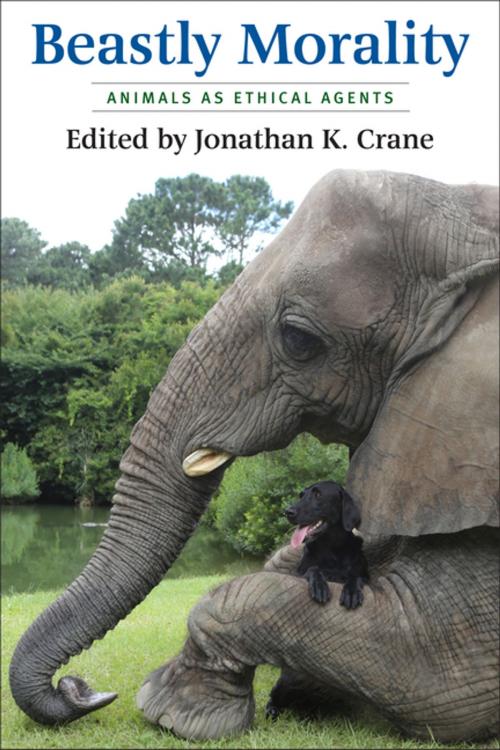Beastly Morality
Animals as Ethical Agents
Nonfiction, Science & Nature, Nature, Animals, Animals Rights, Religion & Spirituality, Philosophy, Ethics & Moral Philosophy| Author: | ISBN: | 9780231540537 | |
| Publisher: | Columbia University Press | Publication: | December 1, 2015 |
| Imprint: | Columbia University Press | Language: | English |
| Author: | |
| ISBN: | 9780231540537 |
| Publisher: | Columbia University Press |
| Publication: | December 1, 2015 |
| Imprint: | Columbia University Press |
| Language: | English |
We have come to regard nonhuman animals as beings of concern, and we even grant them some legal protections. But until we understand animals as moral agents in and of themselves, they will be nothing more than distant recipients of our largesse. Featuring original essays by philosophers, ethicists, religionists, and ethologists, including Marc Bekoff, Frans de Waal, and Elisabetta Palagi, this collection demonstrates the ability of animals to operate morally, process ideas of good and bad, and think seriously about sociality and virtue.
Envisioning nonhuman animals as distinct moral agents marks a paradigm shift in animal studies, as well as philosophy itself. Drawing not only on ethics and religion but also on law, sociology, and cognitive science, the essays in this collection test long-held certainties about moral boundaries and behaviors and prove that nonhuman animals possess complex reasoning capacities, sophisticated empathic sociality, and dynamic and enduring self-conceptions. Rather than claim animal morality is the same as human morality, this book builds an appreciation of the variety and character of animal sensitivities and perceptions across multiple disciplines, moving animal welfarism in promising new directions.
We have come to regard nonhuman animals as beings of concern, and we even grant them some legal protections. But until we understand animals as moral agents in and of themselves, they will be nothing more than distant recipients of our largesse. Featuring original essays by philosophers, ethicists, religionists, and ethologists, including Marc Bekoff, Frans de Waal, and Elisabetta Palagi, this collection demonstrates the ability of animals to operate morally, process ideas of good and bad, and think seriously about sociality and virtue.
Envisioning nonhuman animals as distinct moral agents marks a paradigm shift in animal studies, as well as philosophy itself. Drawing not only on ethics and religion but also on law, sociology, and cognitive science, the essays in this collection test long-held certainties about moral boundaries and behaviors and prove that nonhuman animals possess complex reasoning capacities, sophisticated empathic sociality, and dynamic and enduring self-conceptions. Rather than claim animal morality is the same as human morality, this book builds an appreciation of the variety and character of animal sensitivities and perceptions across multiple disciplines, moving animal welfarism in promising new directions.















